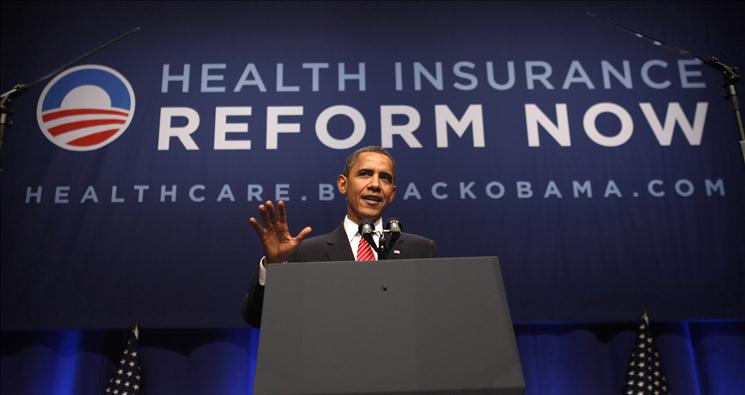Day Two of Supreme Court ObamaCare Oral Argument: The Individual Mandate
Today, March 27, 2012, the Supreme Court will hear two hours of oral argument concerning the constitutionality of the individual mandate. The individual mandate is the essential component of ObamaCare. It requires millions of Americans to buy and indefinitely maintain health insurance or face annual penalties.
The individual mandate marks the first time in the 220-plus year history of our Constitutional form of government that Congress has required American citizens to purchase a product (in this situation, health insurance) from a private company simply because they are American citizens. Previously, Congress provided us with incentives to buy certain products; it did not require us to make those purchases. For example, Congress provided extra money toward the purchase of a new car via the "Cash for Clunkers" program if we chose to buy a new car, but Congress did not require anyone to buy a new car.
The principle behind the individual mandate – that Congress can compel Americans to purchase a product – is a game changer for our country. Should the Supreme Court uphold this bold assertion of power, the Court would be giving Congress virtually unlimited power under the Commerce Clause. From then on, Congress could tell us what to buy and what not to buy (no matter the product); if we refused, we would be hit with annual penalties.
This is not mere speculation. It is the position being advanced by the federal government. During oral argument in a federal court in Pennsylvania in another ObamaCare case, the federal government's attorney acknowledged to the judge that, under the government's theory of the Commerce Clause, if Congress determined that following the adage "an apple a day keeps the doctor away" would improve Americans' health, then Congress would be within its Commerce Clause power to order Americans to purchase apples. Further, the government's attorney did not, and could not, name any requirement to purchase a commodity from a private company that Congress would lack the power to enact.
Because the broad expansion of federal power underlying the individual mandate would, if accepted, lead to a virtually unlimited power for Congress, it is critically important that the Supreme Court invalidate the individual mandate (as well as the entire ObamaCare law). As the Supreme Court has said repeatedly, the Constitution itself illustrates that Congress's power under the Commerce Clause has limits. There are no limits, however, to Congress's power under the federal government's view of the Commerce Clause.
Indeed, should the individual mandate be upheld by the Supreme Court, our nation and system of government will be forever changed. Although the Constitution deliberately divides power among the various branches and levels of government so that no single individual or entity may wield unlimited power, acceptance of the federal government's radical view of the Commerce Clause would fundamentally alter the constitutional balance of power.
For more information about the options the Court has in resolving the ObamaCare case, read my previous post here.
The American Center for Law & Justice ("ACLJ") filed an amicus brief on the individual mandate issue on behalf of itself, 119 Members of the United States Congress, and more than 144,000 supporters of the ACLJ's efforts to overturn ObamaCare. You can access that brief here.
The ACLJ also filed its own challenge to ObamaCare and the individual mandate. That case is pending at the Supreme Court. You can access information about that case here and here.
The audiotape of the individual mandate oral argument will be available this afternoon on the Supreme Court's website by 2:00 p.m. eastern time. You can access the Court's website here.
3.27.2012 Update:
During oral argument today, a number of Justices focused on the main problem with the individual mandate: that, should the mandate be upheld, it would give Congress unlimited power under the Commerce Clause and permit Congress to place additional mandates on American citizens to purchase other products from private companies or face annual penalties. Up until now, the Supreme Court has recognized that Congress’s power under the Commerce Clause has limits. The federal government today, as in the other ObamaCare cases, was unable to articulate any true limits to Congress’s powers should the individual mandate be upheld.
